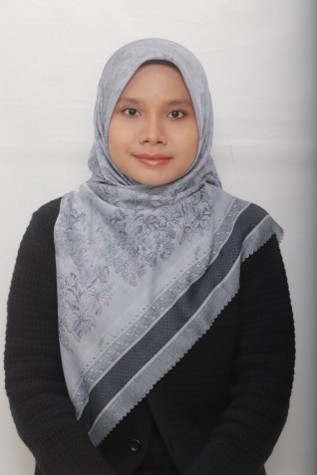
Introduction
On 22 January 2025, Nahdlatul Ulama (NU) and Muhammadiyah took part in a discussion on the revision of the Minerals and Coal Mining (Minerba) Law organised by Indonesia’s House of Representatives (DPR). This was a follow-up effort after both organisations decided to accept mining concessions from the government.
Their inclusion in the revision discussion signifies their shared approach to mining management and the participation of religious organisations.
On paper, the revision of the Minerba Law is intended to improve people’s welfare through equitable distribution of welfare founded upon the principle of economic justice. NU’s and Muhammadiyyah’s participation in the mining industry could also boost their organisational independence.
At first, the government’s offer of mining concessions could be perceived as a strategic move to address the CSOs’ frequent requests for funding to ministries and agencies.
However, critics argue that the organisations’ involvement would remove them from their grassroots bases while simultaneously detaining them in the elites’ political dynamics. Furthermore, by accepting mining concessions from the state, it could be posited that both NU and Muhammadiyah might have given up their independence as CSOs.
What this means is that both organisations have become integral components of the state – thus serving the interest of the government of the day.
The granting of mining permits to the two was finalised through the issuance of Government Regulation Number 25 of 2024. This new regulation allows NU and Muhammadiyah to establish mining companies or business entities under their wings. The two, however, have relatively different ways of managing their concessions.
NU’s chairman, Yahya Cholil Staquf, mentioned that his institution had received a Special Mining License Area of around 25,000 to 26,000 hectares in East Kalimantan. NU has also formed a company engaged in mining, namely PT Berkah Usaha Muamalah Nusantara.
Meanwhile, Muhammadiyah obtained a coal mine in South Kalimantan, formerly managed by the Adaro group.
Regardless, the concession offers mark the shift in the relationship between these two CSOs and the state.
Shifting Dynamics
Signs of this changing relationship started to emerge during former president Joko “Jokowi” Widodo’s second term.
At the 34th NU Muktamar (Congress) on 22 December 2021, Jokowi announced his offering of mining concessions to NU. This was not Jokowi’s only manoeuvre in the event – he also tilted the Congress to favour the election of Yahya Cholil Staquf, his close ally, as chairman of NU’s executive council over Said Aqil Siradj.
Similarly, Muhammadiyah has been offered mining concessions and management rights, though there is no evidence that any such offer was placed during its congress.
President Prabowo Subianto has also continued Jokowi’s tactic of bringing the two CSOs into the state’s fold. Like Jokowi, he has appointed elite NU and Muhammadiyah figures to important positions within the government structure. Such a tactic ensures that his administration receives solid support from Indonesia’s two largest CSOs.
These include the appointments of NU’s Secretary General Saifullah Yusuf (Minister of Social Affairs), NU’s Rais Syuriah Prof KH Nassruddin Umar (Minister of Religious Affairs) and General Leader of the Muslimat NU Arifah Choiri Fauzi (Minister of Women’s Empowerment and Child Protection).
Meanwhile, Prabowo also appointed Muhammadiyah’s Secretary General Abdul Mu’ti and former chairman of the Muhammadiyah Student Association Raja Juli Antoni as Minister of Primary and Secondary Education and Minister of Forestry, respectively.
All of these appointments are on top of numerous state supports, such as programmes that support universities affiliated with the two CSOs. The recent passing of the revised Minerba Law has also resulted in additional state backing.
For example, the state has assisted NU in the creation of 250 NU-owned enterprises and engaged NU to provide Makan Bergizi Gratis (Free Nutritious Meal) – Prabowo’s flagship programme – to students studying under NU’s pesantren. The state has also cooperated with Muhammadiyah in the MBG programme as well as in such areas as migrant workers, education and social affairs.
Convergence and Divergence
In general, the distance between the state and CSOs should not be underestimated. The political positions and attitudes of CSOs are closely related to the prevailing political dynamics shaped by the state. CSOs, thus, could either support or oppose government policies or programmes, depending on the nature of their relationship.
In the political context, NU and Muhammadiyah play an active role in influencing policy discourse from both outside and inside DPR.
Examples include their shared rejection of the Pancasila Ideology Direction Bill in 2020 and their simultaneous push for the government to pass the Sexual Violence Bill in 2022. These examples also illustrate the alignment of both organisations on national and social issues.
They have also diverged on particular issues. Muhammadiyah, for example, rejected the government’s move to revise the Corruption Eradication Commission (KPK) Law in 2019, while an NU element supported it.
This division is more apparent in the controversy surrounding the Constitutional Court’s (MK) decision to reduce the age limit for presidential and vice-presidential candidates. Following the verdict, a number of professors, rectors and students of Universitas Muhammadiyah Yogyakarta (UMY) voiced their opposition, stating their concern that the state’s institutions have failed to perform their functions. However, their position was contradicted by the organisation’s leadership, suggesting that Muhammadiyah is also not united on this issue. In contrast, NU tended to remain silent on the subject, indicating that the CSO has aligned itself with the state’s interest.
Nuances such as these gave birth to the narrative that the two organisations have been “bribed” with the mining concessions in exchange for dialling down their criticism of the government.
Meanwhile, in practical politics, many NU cadres dabble as members of various political parties, though most are concentrated as members of Partai Kebangkitan Bangsa (PKB). The same dynamics can be observed between Muhammadiyah and Partai Amanat Nasional (PAN).
This is not a strange phenomenon in Indonesia’s political landscape, especially considering both PKB and PAN could trace their roots all the way back to NU and Muhammadiyah, respectively.
Both organisations also allow their cadres to partake in political campaigns or join national campaign teams (tim sukses) supporting contesting candidates.
CSOs No More?
Observing these examples above, several key points can be inferred. Firstly, both NU and Muhammadiyah were rather fluid in their relationship with the government – they can swing from being staunch oppositions (the Pancasila Bill) to ardent supporters (the Sexual Violence Bill). Secondly, NU and Muhammadiyah could channel their aspirations through their associated political parties in order to keep their distance from the government.
Despite these instances of divergence and opposition to the government, both groups display their convergence once again in their acceptance of the mining concession offer. This ensures that NU and Muhammadiyah have access to lucrative economic opportunities that could fund their activities while also retaining their seats in Indonesia’s elite political game. However, it should be underlined that it would also increase their dependence on the state and weaken their position as CSOs.
With two of Indonesia’s largest CSOs now orbiting around the state’s gravitational field, power will be increasingly centralised on the state and diminish the spirits of political reform and decentralisation spurred by reformasi.
The question now is this: with both organisations having accepted the concessions, do they still have the capacity to represent and channel the voice of the grassroots communities they claim to represent?
Conclusion
Since the beginning of reformasi, both CSOs have had complex experiences ranging from opposing to partnering with the government. Recently, however, there are instances showing that the state aims to influence the activities and orientation of the two organisations. The mining concession offer is just one such strategy employed by the state to secure the support and non-opposition from the two groups.
When that is achieved, then the state would not only obtain the loyalty of NU and Muhammadiyah but potentially also the associated political parties despite the distance that exists between the CSOs and the parties. As a result, CSOs are no longer considered independent and seem to have been successfully weakened through a process of political resource distribution that is entirely state-centred.

